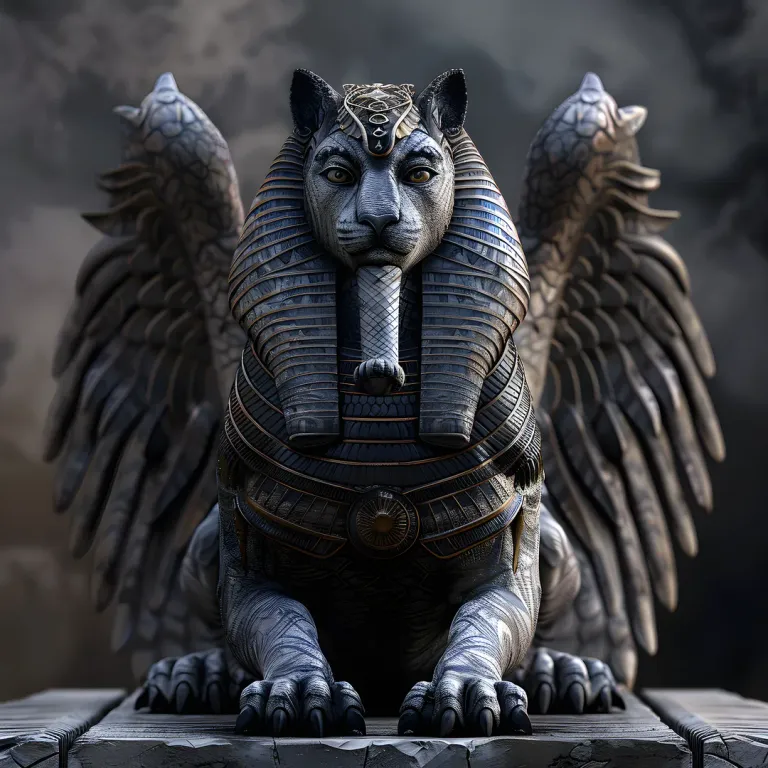The Lost Connection: Ancient Egypt, the Anunnaki, and the Shadows of Atlantis

In the heart of the Egyptian desert, standing in solemn silence for over 4,500 years, the Pyramids of Giza and the mystical Sphinx continue to defy time, logic, and perhaps even history itself. These iconic monuments are more than just relics of a glorious civilization — they may be the fingerprints of something far older, far stranger… and far more advanced.
What if Egypt’s gods were not gods at all, but visitors — just like the Sumerians once described? And what if the roots of both civilizations stretch back even further, to the mythic echoes of Atlantis — a world Plato described in Critias not as fantasy, but as historical record?
Let’s follow the clues.
The Sumerian Connection: Anunnaki, the Sky Beings
Before Egypt’s golden age, the Sumerians flourished in Mesopotamia — widely considered the cradle of civilization. But their records tell a curious tale. In cuneiform tablets like the Enuma Elish and the Epic of Gilgamesh, the Sumerians speak of the Anunnaki — beings from the heavens who descended to Earth gave humans knowledge, and ruled as kings.
These weren’t vague gods of metaphor. They were described as real, physical beings, sometimes even with family lineages, personalities, and rivalries. They had the power to traverse the stars, create life, and alter human destiny. Sounds less like myth… and more like technology.
And here’s where things get strange: the Sumerians claimed this knowledge was given to them — not invented.
Now, thousands of kilometers away and centuries later, Ancient Egypt emerges with its own pantheon of sky gods: Ra, the solar god who traveled through the heavens on a celestial boat; Thoth, the bringer of writing and wisdom; Osiris, ruler of the underworld and master of resurrection. Is it a coincidence that both cultures describe beings from the stars, obsessed with kingship, knowledge, and celestial order?
The Pyramids: Technology of the Gods?
The Great Pyramid of Giza is still not fully understood. It’s aligned almost perfectly to the cardinal points, and its geometry contains mathematical constants like pi and the golden ratio. Inside, there are no hieroglyphs proclaiming its builder. No pharaoh’s name etched in stone. Just silence. As if the structure was never meant to be a tomb — but something else entirely.
Even modern engineers admit: building it with copper tools and primitive sleds would be nearly impossible. So how did they do it?
Some researchers suggest the pyramid wasn’t built by the Egyptians alone, but inherited — part of a forgotten legacy. And that legacy, they argue, links back to the same knowledge the Anunnaki gave to Sumer. And let’s not forget the Sphinx — water erosion on its body suggests it may be over 10,000 years old, long before the accepted timeline of Egyptian civilization. Could this monument have been built by a lost pre-Egyptian culture? A culture like… Atlantis?
Atlantis: Plato’s Clue to the Past
Plato, writing in Critias, described Atlantis as a mighty civilization beyond the Pillars of Hercules, which fell into the sea after a cataclysmic event around 9,000 years before his time. Atlantis was a land of knowledge, divine-human hybrids, advanced technology, and vast power.
Many dismiss it as allegory. But what if it wasn’t?
What if a global disaster — like the end of the Ice Age — wiped out an advanced society, and the survivors spread across the Earth, seeding knowledge in places like Sumer, Egypt, and Mesoamerica? This would explain why ancient cultures, separated by oceans, built pyramids, tracked the stars with unexplainable precision, and spoke of gods who came from the heavens.
It would also explain the sudden appearance of civilization — not as a gradual process, but as a download of knowledge.
The Return of the Sky Gods?
All of this begs the question: if these beings once walked among us, have they truly left? Myths from every corner of the world — from the Hopi prophecy to the Book of Revelation — speak of a time when the gods (or watchers, or beings of light) will return.
And perhaps they never left. Perhaps they’re watching, waiting… or hiding in plain sight. The Anunnaki. The Atlanteans. The gods of Egypt. They may be different names for the same ancient intelligence — one that shaped humanity once, and may do so again.
Whether you view this as metaphor, myth, or mystery — the pattern is there. Etched in stone, buried in sand, and whispered through time. And if we keep asking the right questions, we might just remember who we really are.
Want to dive deeper into these mysteries? Subscribe to my channel, where we explore ancient secrets, forbidden history, and the untold story of our origins.
The past is calling — are you ready to listen?
Posted by Waivio guest: @waivio_cosmicsecrets
